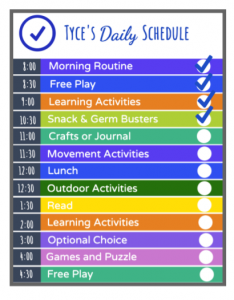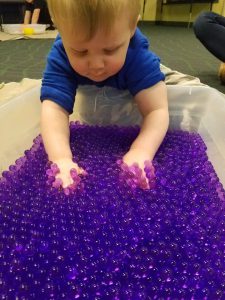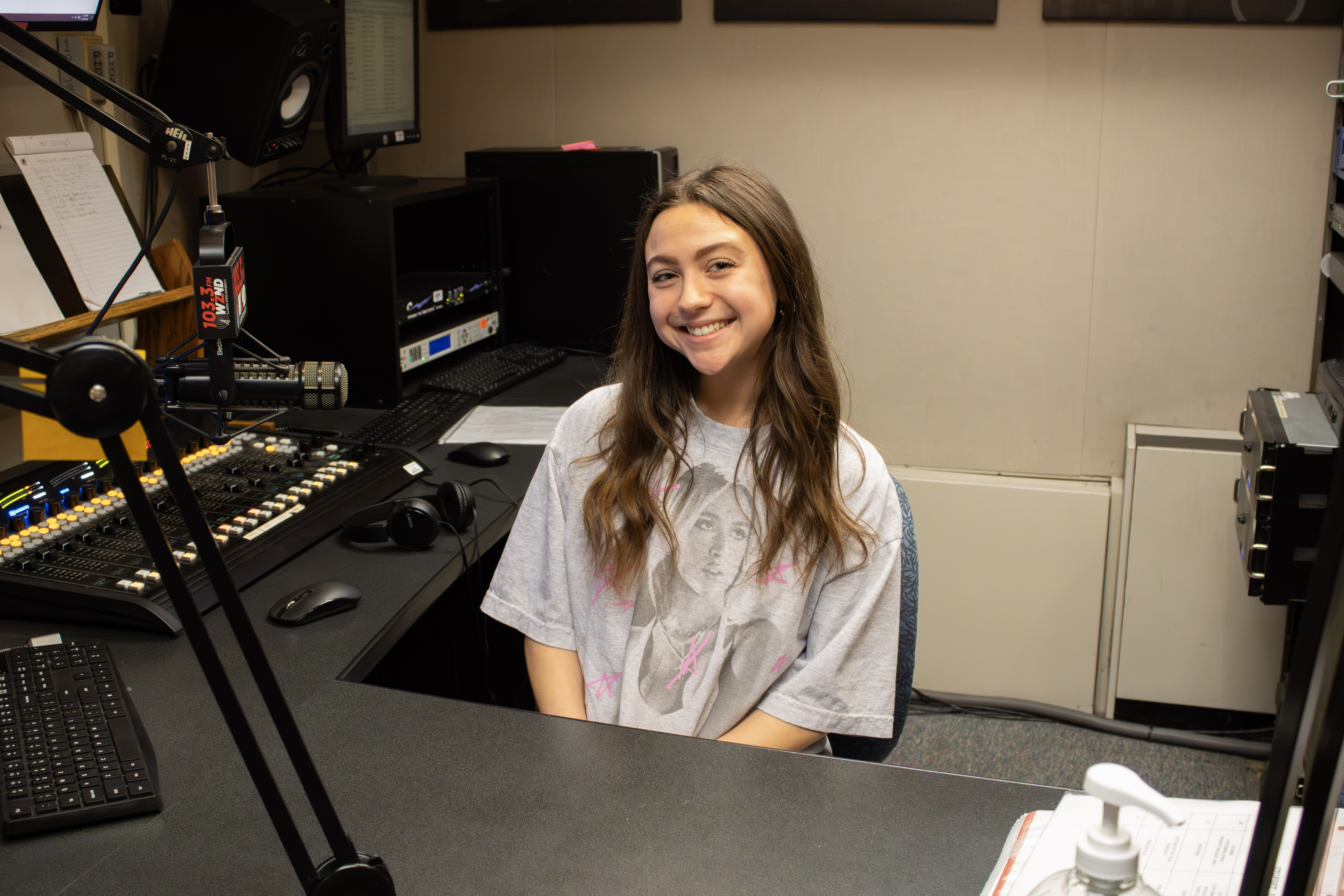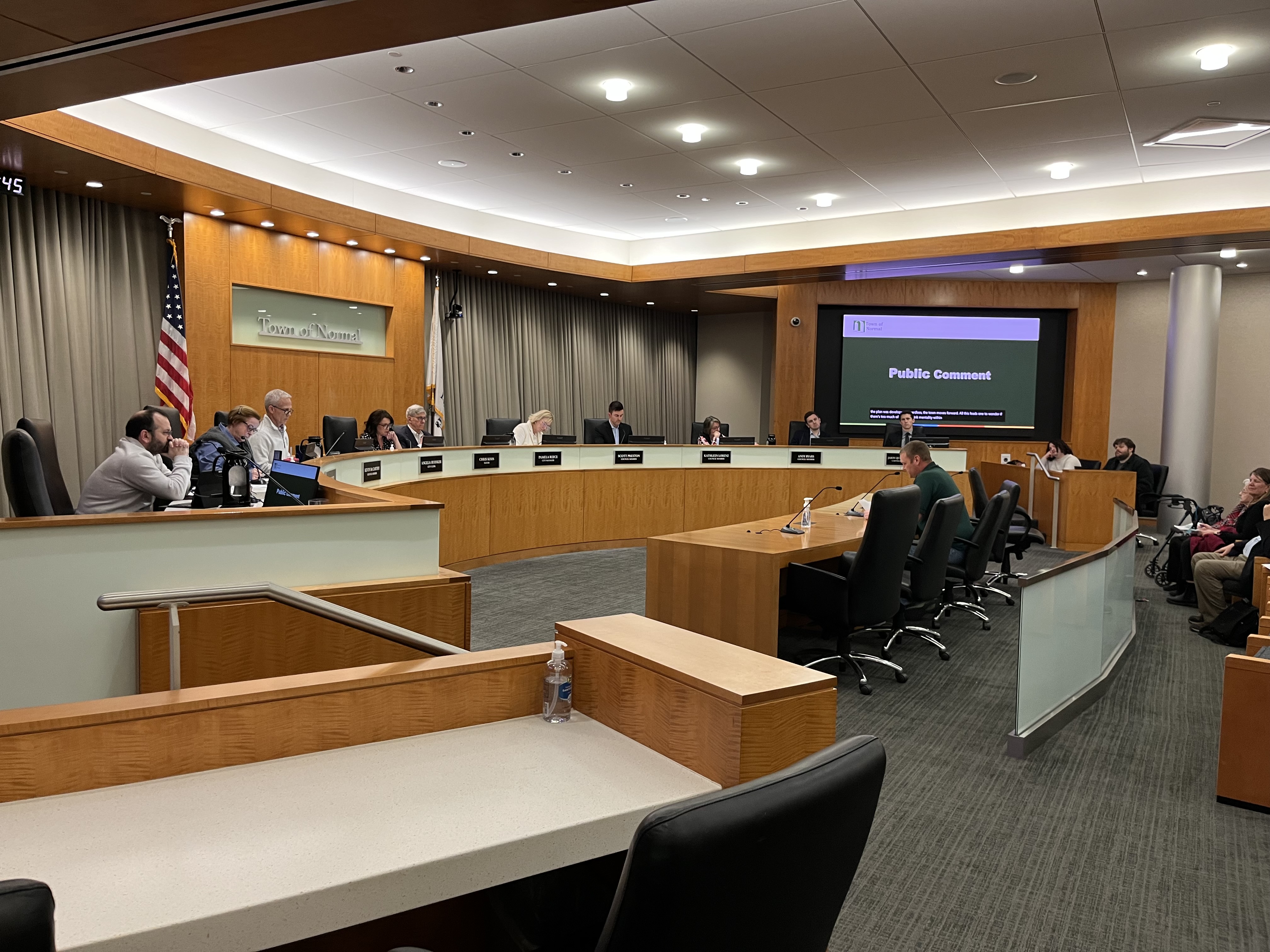Coping with COVID-19: Impacting the Autism Community
Written by WZND Newsroom on May 7, 2020
The COVID-19 pandemic has had an impact on the services available to individuals with autism in the community.
According to the Autism McLean and the CDC, many learners with Autism Spectrum Disorder may face challenges related to comprehension, communication, difficulty understanding abstract language, an insistence on sameness, and a greater likelihood of anxiety and depression – all of which may be worsened during the pandemic.
The Autism Place (TAP) is a network of resources in the local community for children diagnosed with Autism Spectrum Disorders. TAP is funded by grants, donations, the Department of Psychology and Illinois State University. TAP works mostly with children and adolescents with autism and their families.

Photo courtesy to Autism McLean website
“Unexpected change is certainly a challenge for everyone, and especially for many individuals on the autism spectrum, who particularly like predictable routines,” said ISU Associate Professor Karla Doepke. “The changes that come with COVID are naturally difficult, as there is little predictability with how long it will last or what the next steps will be.”
Doepke says for individuals with autism, it is helpful to create a new routine, that is predictable and contains activities of daily living and relaxing activities.
“It is helpful for them to be able to see the schedule and be able to ‘cross things off’ as they occur,” said Doepke.
Tap is working with Autism McLean, a local autism group that provides support to families through a variety of programs and activities.
Autism McLean Project Research Coordinator, Nikki Michalak suggests listing activities or expectations while developing a schedule.
“Be sure to balance structured activities with fun things to do, hard tasks followed by easier and more enjoyable activities. Be sure to go over the schedule each morning and review it during the day to show what is coming next,” said Michalak. “As activities pass, provide an opportunity to check off completed activities and tasks. And, don’t forget; it will take time to get used to the new schedule.”

Photo courtesy to Autism McLean
According to Autism McLean, it is also important for individuals with autism to be able to see when a change may happen. For example, a potential return to school or return to services. This is often accomplished through the use of visual schedules.
“For individuals with autism, there are social stories, visual stories with explanations of the social and practical reasons why school is closed, why activities are limited, and what they can do to cope, created that especially explain COVID 19 and restrictions,” said Doepke. “These may be helpful to explain the reasons for the changes in daily life.”
Autism McLean believes communication about what the virus is and how it is changing everything will prove to be very helpful when coping with COVID-19.
“When stress and anxiety levels increase, many individuals with ASD who use verbal language may lose the ability to access their works and, instead use their behavior to communicate. Recognize that an increase in challenging behaviors may be an expression of anxiety or fear,” said Michalak. “Consider asking your child’s teacher about the strategies implemented in the classroom that support expressive communication. There are many communication support strategies that can help when there may be a breakdown in expression.”

Photo courtesy to Autism McLean website
Routines are especially comforting to children with autism, so the stay-at-home order has created a significant change in their life.
“Establishing a new routine at home can greatly minimize anxiety in children when they are surrounded by so much change. New routines may involve sticking to the same wake-up and bedtimes, meal times, outside time, school work time and playtime,” said Children Discovery Museum’s Clare Dietmeier. “Allowing the child to have some choice in the routine can be beneficial.”
According the Autism McLean, giving two-minute warnings between one routine time to another can help ease the transition process for a child with autism.
Different programs in Bloomington-Normal are still proving help to individuals with autism in the community.
“We can no longer provide face-to-face services for our clients, but continue to provide support through phone consultation and some digital platforms, our Facebook page for both our main program and our early childhood program and an active e-mail where we can exchange ideas and resources with our families,” said Doepke. “We continue to provide training to pre-professionals via Zoom and other virtual platforms.”
TAP has also utilized this time to strengthen their program, by continuing to review program materials, expand their resources and prepare for services once the social distancing restrictions are lifted.
“We are making plans for summer programming. We have been fortunate to keep our staff during this time,” said Doepke.
According to Autism McLean, individuals with ASD are more susceptible to social isolation and loneliness, and this may be worsened by shelter-in conditions.
“Positive social support is important for everyone during this period, and individuals with autism may need more explicit facilitation to ensure that social connections continue,” said Michalak. “Try to vary how you communicate: don’t just use video chat or only text. Use all the resources at your disposal.”
One event that has been postponed is the annual Children Discovery Museum’s Sensory Friendly Night, which was scheduled this April for Autism Awareness month, but has been pushed to Friday, July 10, from 5:30 to 8 p.m.

Photo courtesy to CDM Facebook page
The July event will have controlled attendance to prevent crowds and accommodations throughout the museum to make the space for sensory sensitivity.
“We additionally have special sensory-friendly activities and community organizations present to inform parents of their services for children on the spectrum,” said Dietmeier. “Change is difficult. You are not alone; we are all experiencing change together! There are resources to help us cope.”
Doepke expands on how the community can help during this time.
“First and foremost, follow the shelter in place orders so that we can return to a more normal routine sooner,” said Doepke. “Second, show compassion and grace to others. “
TAP and Austim McLean run primarily on memberships and donations.
“Third, support service providers and local autism groups. This can be done by talking to legislators about the continued importance of funding these services and also through donations,” said Doepke.
Finally, Autism McLean and TAP encourages the community to participate in virtual activities that support individuals with autism.
“Kind words can be as meaningful as monetary support,” said Doepke. “This is a difficult time for everyone, and for individuals who have difficulties with communication, like individuals on the autism spectrum, this may be an even more difficult time.”




